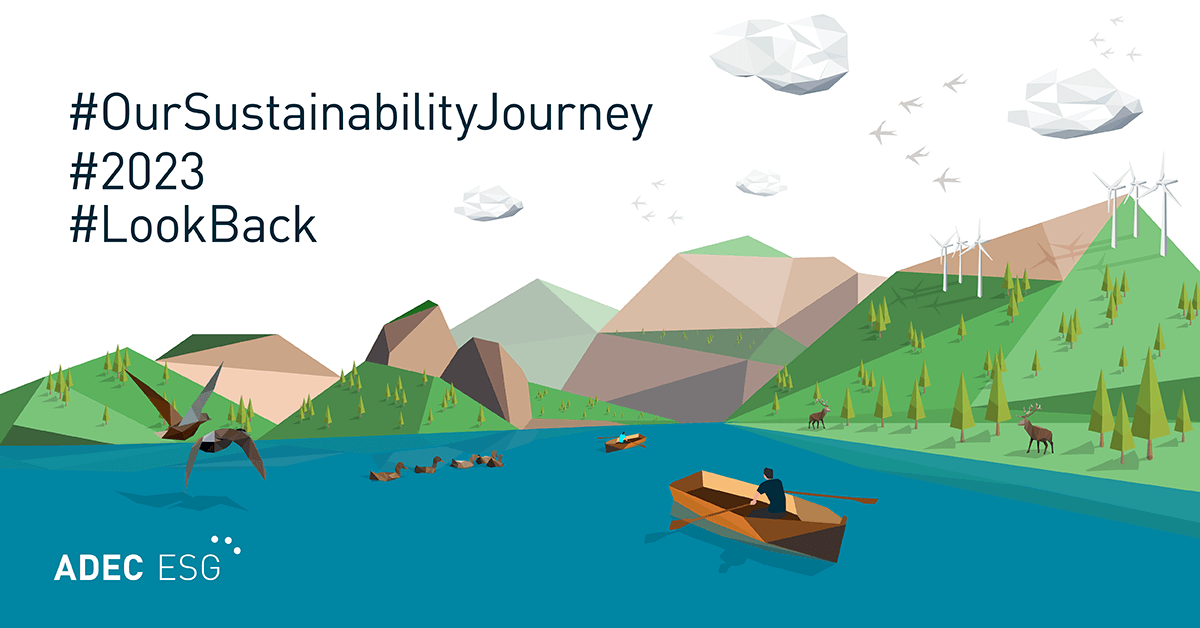As changes in the environment continue to affect businesses, engaging in eco-friendly businesses seems like a “no-brainer”. Not only do they help prepare companies for change, but environmental sustainability solutions also help cut costs, increase profit, and make brands trustworthy and more sought-after.
Eventually, the effects of the environment-conscious efforts of businesses will encompass the society and the government, thus giving rise to Environment, Society and Government action (ESG). However, many companies lack interest.
Sustainability expert Bob Willard in an April 2013 article1 says that this lack of interest occurs when companies aren’t encouraged by investors to report their ESG efforts, resulting in losses for both companies and investors. To break this cycle, one of the two sectors must step up and make their own initiatives — either companies must detail their sustainability efforts in their annual report, or investors take the initiative to set capital as rewards for sustainable companies. To propel businesses to engage in sustainability efforts, current hindrances to sustainability reporting must be addressed. After these changes, businesses will convince capital markets that sustainability/ESG actions are significant, especially in the long term.
The Global Sustainability Megaforces and Their Impact on Business
KPMG International, a network of firms specializing in sustainability practices, brought the Global Sustainability Megaforces to businesses’ attention in their 2012 report entitled Expect the Unexpected: Building business value in a changing world.
KPMG identified the “Ten Global Sustainability Megaforces” as the changes that will have the greatest effects on business. These Megaforces include climate change, energy & fuel consumption, material resource scarcity, and water scarcity to list a few. The Megaforces indicate that the irreversible depletion of Earth’s natural resources due to unsustainable practices can ultimately lead to scarcity. In business, scarcity of any resource affects overall production and profit, forcing some to downsize or shut their doors.
Megaforce Risks and Opportunities
The Global Sustainability Megaforces produce both risks and opportunities. Businesses that conduct environmental sustainability solutions are better prepared for the impacts of the Megaforces, namely: price increases and volatility, new regulations, physical and weather changes, changes in consumer preferences, and resource constraints on production2. The Megaforces may bring regulatory, reputational, physical, market, litigation, and social risks to businesses.
On the other hand, opportunities open for businesses to build an eco-friendly reputation and empower their brands. Pressures of scarcity may lead to alternative resources, which may encourage businesses to develop new products and services to cater to new environment-conscious markets. While access to capital is still narrow, important regulatory changes in the next two years may make capital more accessible to businesses that practice environmental sustainability solutions and sustainability reporting.
Business Interventions: Environment, Social and Government (ESG) Actions
Businesses rely on the environment for resources in producing goods and services, and as functions of society they employ manpower to produce goods and services for consumers. The government is responsible for planning, creating and promulgating legislations which regulate businesses’ effects on the environment and society.
Because businesses have a major impact on ESG, KPMG suggests specific ESG actions which businesses can undertake such as: efficient use of energy and resources in operations, and sustainable supply chain management, in which businesses observe a sustainable supply of their goods and services to consumers, and ensure that their own resources are provided sustainably by their suppliers.
Sustainability Reporting: Entrusting Capital on ESG-performing Businesses
In the same April 2013 article1, Bob Willard expounds that the key for more businesses to engage in ESG efforts is in the hands of the lenders and investors. Willard notes that capital markets should be informed that it’s wise to invest in ESG-performing companies, because it’s a safe and profitable investment that prevents losses.
Since the lack of correct and relevant information stops capital markets from encouraging businesses to make ESG action, more changes, such as the following, must occur in sustainability reporting.
CERES and Tellus Institute will come out with a global sustainability rating standard in 2015 called the GISR (Global Initiative for Sustainability Ratings). It will be similar to the way that GRI standardizes sustainability reporting.
The IIRC or International Integrated Reporting Council is introducing the inclusion of non-financial reporting or “intangibles”—the values obtained from sustainability/ESG efforts—into companies’ financial statements. By 2014, companies are expected to create annual reports following the IIRC’s IR Framework. With the proliferation of a new reporting framework, a new mindset will echo among lenders and investors: A company is as valuable as the ESG actions it makes.
The Sustainability Accounting and Standards Board (SASB) will see to it that intangibles are auditable and are therefore necessary information for all stakeholders. By 2015, the SASB will have completed “ESG disclosure standards” for 10 industry sectors.
FirstCarbon Solutions’ Role
The effects of ESG actions can be best quantified with data obtained by a reputable and highly experienced environment and sustainability solutions firm. FirstCarbon Solutions’ consulting, software and data processing services can help companies gauge their ESG performance. Utilizing extensive experience in sustainability, energy, and environment management, FirstCarbon Solutions provides customized solutions based on the unique needs of businesses from various industries.
This blog was based on an article from our newsletter, GreenWatch. Click here to learn more and sign up to receive GreenWatch each month.
References:
1 Willard, B. (April 15, 2013). 2015 Will Bring “Sweeping Changes” to Capital Markets. http://nbs.net/2015-will-bring-sweeping-changes-to-capital-markets/
2KPMG International. (2012). Expect the Unexpected: Building business value in a changing world. Retrieved from http://www.kpmg.com/dutchcaribbean/en/Documents/KPMG%20Expect_the_Unexpected_ExctveSmmry_FINAL_WebAccessible.pdf




